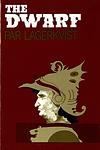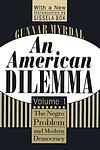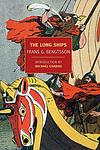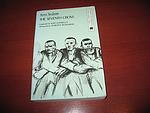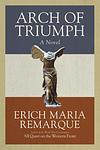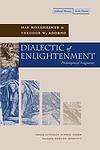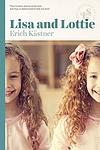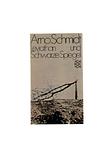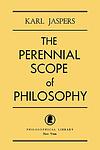The Greatest Swedish, German Books From 1940 to 1949
Click to learn how this list is calculated.
This list represents a comprehensive and trusted collection of the greatest books. Developed through a specialized algorithm, it brings together 291 'best of' book lists to form a definitive guide to the world's most acclaimed books. For those interested in how these books are chosen, additional details can be found on the rankings page.
Genres
Countries
Date Range
Reading Statistics
Click the button below to see how many of these books you've read!
Download
If you're interested in downloading this list as a CSV file for use in a spreadsheet application, you can easily do so by clicking the button below. Please note that to ensure a manageable file size and faster download, the CSV will include details for only the first 500 books.
Download-
1. Doctor Faustus by Thomas Mann
The novel is a reimagining of the Faust legend set in the context of the first half of the 20th century and the turmoil of Germany in that period. It tells the story of a composer who makes a pact with the devil, exchanging his soul for unlimited creative genius. The protagonist's life and work reflect the cultural and political journey of Germany leading up to World War II, providing a deep exploration of the individual's role in a society undergoing dramatic change. The novel is also a profound meditation on the nature of time, the art and the artist, and the destructiveness of human ambition.
-
2. Pippi Longstocking by Astrid Lindgren
The book tells the story of Pippi Longstocking, a young girl with superhuman strength who lives alone in a colorful house in a small Swedish village. With her pet monkey and horse, Pippi embarks on a series of humorous and often absurd adventures, defying societal norms and adult authority with her unconventional wisdom and moral code. Despite her wild antics, Pippi's kindness, generosity, and courage make her a beloved figure in her community.
-
3. The Glass Bead Game by Hermann Hesse
Set in the 23rd century, the novel revolves around a highly intellectual game, the Glass Bead Game, which incorporates all fields of human and cosmic knowledge. The story follows the life of Joseph Knecht, a scholar who becomes a Magister Ludi (Master of the Game). The book explores his life and thoughts, including his relationships with others and his questioning of the values of his society. The narrative is a profound exploration of human life, knowledge, and spirituality.
-
4. The Dwarf by Par Lagerkvist
"The Dwarf" is a dark, philosophical novel set in the Italian Renaissance, narrated by a malevolent court dwarf who serves a prince. The dwarf is a symbol for the darker side of humanity, embodying all the malice, deceit, and manipulation that one can possess. His actions and viewpoint provide a cynical commentary on human nature and the moral complexities of power, war, and love. The novel explores themes of good and evil, faith and doubt, and the destructive side of human nature.
-
5. An American Dilemma by Gunnar Myrdal
This book is a comprehensive sociological study on the issues faced by African Americans in the United States during the mid-twentieth century. The author examines the deep-rooted racial discrimination and inequality prevalent in American society, exploring its origins, implications, and potential solutions. The work is notable for its detailed analysis and its impact on subsequent civil rights movements.
-
6. The Long Ships by Frans G. Bengtsson
"The Long Ships" is a historical fiction novel centering around the Viking era. The story follows the adventures of a young Viking named Red Orm who is kidnapped by other Vikings, becomes a slave, then a chieftain's henchman, a merchant, explorer, and a soldier. His adventures take him from his native Sweden to Spain, England, Denmark, and Ireland. The novel explores the political, religious, and cultural landscapes of the era, providing a detailed and engaging portrayal of the Viking world.
-
7. The Emigrants by Vilhelm Moberg
"The Emigrants" is a historical novel that follows the journey of a Swedish farming family who, driven by poverty and religious persecution, decide to emigrate to America in the mid-19th century. The narrative explores their struggles and hardships, from the decision to leave their homeland, the arduous journey across the Atlantic, to their eventual settlement in Minnesota. The book provides a profound and realistic depiction of the immigrant experience, highlighting the courage, determination, and resilience of the emigrants.
-
8. Mother Courage and Her Children by Bertolt Brecht
Set against the backdrop of the Thirty Years' War, the book tells the story of a canteen woman, Mother Courage, who pulls her cart with her three children across war-torn Europe. It explores her struggles and survival tactics as she tries to profit from the war while keeping her children safe. The narrative is a profound critique of war and its consequences, highlighting the human cost of conflict and the often futile search for prosperity and security in a chaotic world.
-
9. The Resistible Rise of Arturo Ui by Bertolt Brecht
"The Resistible Rise of Arturo Ui" is a satirical play that uses the rise of a fictional 1930s Chicago mobster, Arturo Ui, to parallel the rise of Adolf Hitler in Nazi Germany. The narrative is a critique of those who allowed Hitler to come to power, emphasizing that his rise was indeed resistible. The play explores themes of power, corruption, manipulation, and the dangers of complacency, showcasing the destructive potential of unchecked ambition and the failure of society to prevent the ascent of dangerous individuals.
-
10. The Seventh Cross by Anna Seghers
"The Seventh Cross" is a gripping tale set in Nazi Germany that revolves around seven men who escape from a concentration camp. The camp commandant erects seven crosses, vowing to hang each escapee on their return. The story primarily follows one escapee, who manages to evade capture and make his way back to his hometown. The narrative explores the psychological terror imposed by the Nazi regime, the resilience of human spirit, and the subtle forms of resistance within the German populace.
-
11. Arch Of Triumph by Erich Maria Remarque
Set against the backdrop of the looming Second World War in Paris, the narrative follows a German refugee and surgeon who is living without proper documents after escaping from Nazi Germany. Haunted by his past and the horrors he has witnessed, he navigates the dark streets of Paris, performing surgeries in a clandestine practice for other displaced immigrants. Amidst his struggle for survival and identity, he engages in a passionate but tumultuous love affair with an Italian woman, which brings temporary solace but ultimately leads to greater despair. The story is a poignant exploration of exile, loss, and the human desire for connection and meaning in the face of relentless adversity.
-
12. Dialectic Of Enlightenment by Max Horkheimer, Theodor Adorno
"Dialectic of Enlightenment" is a seminal philosophical work that explores the nature of enlightenment and its paradoxical relationship with the concept of reason. The authors argue that the Enlightenment's quest for knowledge, freedom, and autonomy has inadvertently led to the opposite: a form of domination and control through instrumental reason. They examine how the Enlightenment's rationality, once aimed at liberating individuals from myth and superstition, has devolved into a tool of oppression, giving rise to totalitarian systems and a culture industry that manipulates mass society. The book delves into various cultural artifacts, including literature, film, and popular culture, to illustrate how enlightenment has become self-destructive, ultimately questioning the possibility of true emancipation in a society governed by the very rationality that was supposed to set it free.
-
13. Lottie And Lisa by Erich Kästner
The book tells the charming story of identical twin sisters separated at birth who meet unexpectedly at a summer camp. Initially unaware of their relationship, the girls take an instant dislike to each other due to their identical appearances, but as they get to know one another, they discover their shared parentage. They decide to switch places, with each going to live with the parent the other has grown up with, in an attempt to reunite their estranged family. Through a series of heartwarming and humorous events, the twins work together to bring their mother and father back together, exploring themes of family, identity, and the bond between siblings.
-
14. Transit by Anna Seghers
A German man escapes from a Nazi concentration camp during World War II and finds himself stuck in Marseille, France, where he assumes the identity of a deceased author to secure a transit visa. As he navigates the bureaucratic maze of the immigration process, he becomes entangled in the lives of the refugees around him, including a desperate woman searching for her missing husband, the very man he's impersonating. The novel explores themes of identity, displacement, and the human struggle for freedom.
-
15. The Road by Harry Martinson
"The Road" is a reflective and poignant narrative that delves into the life of a young man who leaves his rural home to explore the urban landscape, seeking new experiences and understanding of the world. The protagonist's journey is both literal and metaphorical, as he navigates through various cities and encounters diverse people, each adding depth to his understanding of society and himself. The novel intricately portrays themes of isolation, the search for meaning, and the impact of industrialization on human connections and the environment, capturing the existential dilemmas of modern life.
-
16. The Road to Klockrike by Harry Martinson
This novel tells the story of a wandering day laborer in Sweden during the early 20th century. The protagonist, who is mentally challenged, travels from farm to farm, performing odd jobs and struggling to survive. The narrative explores the harsh realities of life for the poor and disadvantaged, as well as the protagonist's interactions with various characters he meets along the way. Despite the hardships, the main character manages to maintain a sense of optimism and joy in life.
-
17. Kallocain by Karin Boye
This dystopian novel presents a totalitarian world where the government exercises complete control over its citizens' lives, even their thoughts. The protagonist, a loyal soldier, invents a truth serum named Kallocain, which the government uses to extract citizens' innermost secrets. As the story unfolds, the protagonist begins to question the morality of his invention and the regime he serves, leading to a deep personal crisis. The book explores themes of individual freedom, privacy, and the dehumanizing effects of totalitarianism.
-
18. The Man Without a Way by Erik Lindegren
"The Man Without a Way" is a thought-provoking exploration of a man's existential crisis as he navigates his way through life without a clear path or purpose. The protagonist grapples with feelings of alienation, disillusionment, and a deep-seated sense of despair, reflecting the author's own experiences and struggles. The narrative delves into the human psyche, examining themes of identity, self-doubt, and the quest for meaning in an increasingly complex and chaotic world.
-
19. Collected Poems by Nils Ferlin
"Collected Poems" is a compilation of the works of a renowned Swedish poet, capturing the essence of his unique style and lyrical prowess. The poems explore various themes such as love, life, death, and the human condition, often with a touch of melancholy and a keen sense of observation. The poet's ability to weave intricate emotions and vivid imagery into his verses makes this collection a testament to his literary genius.
-
20. The Caucasian Chalk Circle by Bertolt Brecht
The play is a parable set in the Soviet Union that explores themes of justice, class struggle, and morality through the story of Grusha, a servant girl who risks her life to protect an abandoned child of noble birth during a time of revolution. As the child grows, a dispute over his custody arises, leading to a trial presided over by a wily, unconventional judge named Azdak. The trial's resolution hinges on the titular chalk circle test, which ultimately reveals the true nature of parental love and the importance of putting the needs of the child first. The narrative is a commentary on the social and political issues of the time, advocating for a society that prioritizes the welfare of its most vulnerable members.
-
21. Leviathan by Arno Schmidt
"Leviathan" is a complex narrative that delves into the psyche of a German intellectual coping with the aftermath of World War II. The protagonist, a reclusive translator, grapples with his own personal demons and the broader existential crisis of a nation in ruins. Through a series of introspective monologues and interactions with both real and imagined characters, the book explores themes of guilt, isolation, and the search for meaning in a world that has been irrevocably altered by the horrors of war. The novel's dense and challenging prose, combined with its allusions to mythology and literature, creates a rich tapestry that demands the reader's engagement with the historical and philosophical questions it raises.
-
22. The Burnt Child by Stig Dagerman
"The Burnt Child" is a psychological novel that delves into the complexities of grief and guilt. The narrative follows a young man who is grappling with the traumatic loss of his father, who died in a mysterious fire. As he returns to his family home, he is consumed by the need to uncover the truth behind the tragedy, while also confronting his own inner demons and the strained relationships with those around him. The novel explores the depths of human emotion and the dark corners of the mind, as the protagonist's quest for answers leads him down a path of self-discovery and redemption.
-
23. A Burnt Child by Stig Dagerman
The novel delves into the psychological turmoil of a young man grappling with the complexities of adulthood and the haunting specter of his father's death. As he navigates the murky waters of guilt, desire, and rebellion, he becomes entangled in a web of relationships that challenge his understanding of love, morality, and his own identity. Set against the backdrop of post-war Sweden, the story is a poignant exploration of grief, the struggle for self-discovery, and the painful journey towards coming-of-age in a world that seems both indifferent and unforgiving.
-
24. The Structure And Practice Of National Socialism by Franz Neumann
The book provides a comprehensive analysis of the political, social, and economic systems of National Socialism in Germany from its rise to power to its functioning during World War II. It delves into the regime's ideologies, the role of terror and propaganda, the structure of the state, and the interplay between different power groups within the Nazi hierarchy. The author critically examines how the regime sought to create a totalitarian state, with a particular focus on the suppression of individual freedoms and the mechanisms of control used to maintain its authority. Through this exploration, the book offers insights into the complexities and contradictions of the Nazi system, as well as the devastating impact it had on society and the world at large.
-
25. The Perennial Scope Of Philosophy by Karl Jaspers
The book in question explores the enduring nature of philosophical inquiry, examining how it transcends temporal and cultural boundaries to address fundamental questions of existence, knowledge, and ethics. The author argues that philosophy is not confined to any particular era or dogma but is a continuous pursuit of truth that evolves with human thought while remaining rooted in the quest for universal understanding. Through a critical examination of historical philosophical movements and their contributions to the ongoing dialogue, the work emphasizes the importance of philosophy in providing a framework for individuals to confront the mysteries of life and the universe, encouraging readers to engage in their own philosophical contemplation.
Reading Statistics
Click the button below to see how many of these books you've read!
Download
If you're interested in downloading this list as a CSV file for use in a spreadsheet application, you can easily do so by clicking the button below. Please note that to ensure a manageable file size and faster download, the CSV will include details for only the first 500 books.
Download


